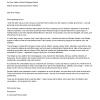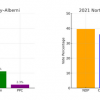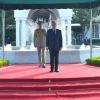I am the father of a child with Angelman Syndrome (AS), a neurological disorder with a genetic root cause.
In AS, a mutation or deletion of the maternal UBE3A gene causes moderate to severe developmental delay, an inability to speak, issues with learning, memory and mobility, and debilitating seizures. As the genetic events that cause AS are random, incidence is global.
Despite these challenges, Angels can lead long lives, as long as caregivers keep them safe and their seizures under control.
The Angelman Syndrome community has always held out hope for a cure, and the science agrees this is possible. The biology of Angelman Syndrome is simple and well understood. In AS, the nervous system is well formed, but individual neurons do not function properly due to the lack of a key enzyme. Restoring the function of the UBE3A gene would rescue patients biochemically.
An effective therapy for AS would unlock the latent human potential of every child and adult Angel. It would eliminate seizures. It would improve cognition, speech and motor control. This would mean decades of higher life quality for each patient and for their caregivers.
The Angelman community has itself raised the money we need to start the search for a cure. There are promising therapies in the pipeline. Unfortunately, progress is taking more time than we have to spend. Every month we lose children to intractable seizures, and the potential of our Angels is being wasted.
For this reason, I am asking you to put Angelman Syndrome on your list of funding priorities. Your support would speed us on our way to finding a cure, and would have a meaningful impact on human health and happiness.
Here is my challenge to you:
- Join with us to fight Angelman Syndrome.
- Engage with us to find out why our science supports hope for a cure, and how our work benefits the study of Autism and other neurogenetic disorders.
- Fund research through our high performing charities, the Foundation for Angelman Syndrome Therapeutics and the Angelman Syndrome Foundation.
If there is any way that I can help you answer this challenge, please reach out to me.
Best regards,
C. Adam O’Toole
Maynard, MA
[email protected]















